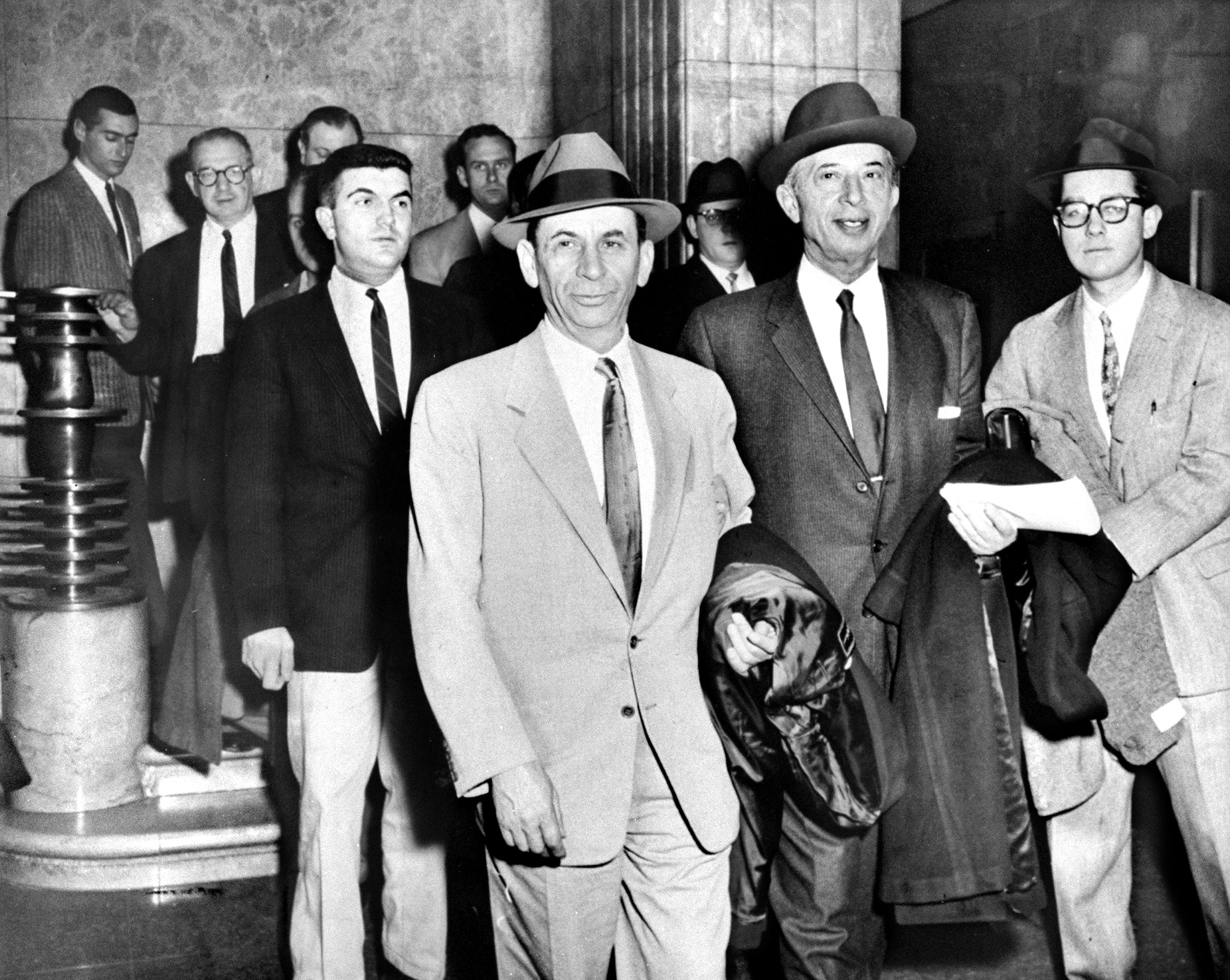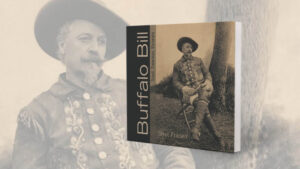From an impoverished childhood on New York City’s Lower East Side, to rising in the ranks of organized crime and becoming a key figure in the 1934 creation of a national crime syndicate, the macabre fascination with crime boss Meyer Lansky continues to this day.
While much has been written about the man who captured the public’s imagination — the character Hyman Roth in Godfather II was inspired by Lansky — director and writer Eytan Rockaway holds an ace up his sleeve in his latest film “Lansky.” His own father, Robert, was among the few granted an interview with Lanksy on record before the crime boss’ death in 1983.
Pulling from his own father’s work, Rockaway follows down on his luck reporter David Stone (Sam Worthington) as he interviews the dying Lansky (Harvey Keitel) over a span of several days.
Dubbed the financial wizard of organized crime, Lansky was once described by an FBI agent as a man who “would have been chairman of the board of General Motors if he’d gone into legitimate business.”
Rockaway recently spoke to HistoryNet about his latest film and its exploration in morality.
Your film on Meyer Lansky is loosely based on the real-life story of your father interviewing the crime boss before he died. Can you tell me a little more about that?
My father is a history professor, and he wrote a book about gangsters and organized crime. That’s one of the areas of his expertise. The book is called, But He was Good to His Mother. He interviewed Meyer Lansky before he passed away. The character of (the reporter) David Stone in the movie is loosely based on their encounter.
It’s a fictionalized character, but I thought since my father interviewed him, it would be a unique way to tell the story because he had his own observations towards Lansky.
Has the idea for this film always been in the back of your mind due to your own personal history with it?
I grew up with stories about Greek mythology and gangsters. My father gave me the gangster bug at a young age. As a kid, when he was telling you all these stories, they always sounded like mythical characters from Greek and Norse mythology. I was always kind of attracted to the subject because of that.
The life of Lansky is incredibly well known but still holds some mysteries. What drew you to this story and telling it this way?
For me Lansky is a very interesting, influential character because he was never really caught or spent any time in jail. He was a ruthless gangster and I’m not trying to glorify that, but at the same time he an academic. He was a great businessman, he took crime and underworld and turned it into a successful business when he formed a National Crime Syndicate. He actually managed, operated, and structured that organization like a Fortune 500 company. If he grew up in a different life, I’m certain that he would probably be a CEO of a Fortune 500 company.
So it’s that character that drew me to him — the two personalities that he had. A person that always toed the line between good and bad. It was very important to me to show the height of his power and then how he perceived things as an older man.
For me, this whole movie is an exploration into morality. What’s good, what’s bad, coming to terms with your life, what’s important in life. I think when you’re 80-years-old facing that, it’s very different than when you’re in your 20s and 30s. I think it’s a lesson that everybody can learn from.
Would you consider Lansky an unreliable narrator? A man on his deathbed trying to shape his legacy?
I could have made the entire voiceover have Lansky and then it wouldn’t be believable. I actually chose Stone, because to me he was the character that was going to eventually tell the whole truth. Through Stone you get the reporter, and then Lansky gives his own take on it — both are legitimate. I did take some creative liberties, but everything with the Nazis, helping the government during WWII, most of the situations there are historically accurate.
How did you try to balance the story behind the creation of the Crime Syndicate and the actual man who engineered it?
That’s why I went into a lot of intimate scenes with his wife and with his son. It was important to me to show that he was also father. Not to glorify how he was to his first wife and show how it really was.
When you think about these men one often thinks of violence, Tommy guns, blood. But I also wanted to show that he was good with numbers as a kid. I chose to show how he structured the business. I tried showing important aspects of both sides of his character to bring out who he was and why he was so unique.
How did COVID-19 effect the filming of Lansky?
It was very hard to develop this movie, finance it, and get it made fun. Finally, we got there, but then we only had 20 days to shoot in Alabama on a budget of $5 million. I was working 17-18 hour days. When we were done with that, I was like, “Okay, finally the movie’s in the can.” I flew out to LA to start the editing process and then the pandemic hit and we had to quarantine.
It was very difficult to edit like that because we had people in different places, different cities, different countries. When you’re editing a movie, doing special effects, sound music, especially editing, when you get to a situation where you’re cutting the film, not by seconds or by minutes, but by frames and you’re doing it online with somebody in a different city or country over bad wifi… it was very, very hard.
There is a certain father-son relationship that comes through between Lansky and Stone. How intentional was that?
It was very much intentional. That’s why Lansky finds out that David Stone’s father walked on him. I wanted the audience to accept, at least from David Stone’s perspective, a fatherly figure dispersing his wisdom to a certain extent. You can learn a lot from these people, the good and the bad.
“Lansky” is now in select theaters and is available to watch on Apple TV.





